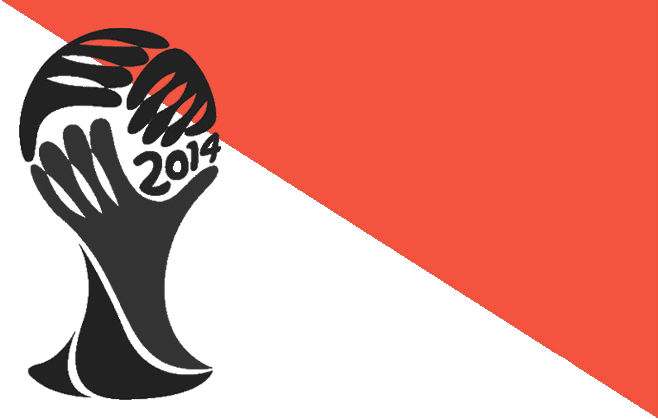
Should unofficial sponsors use the World Cup for marketing?
In our last blog post, we explored how social media platforms have been gearing up for the World Cup, and how digital marketers are being hit by FIFA’s strict rules. It’s interesting to see however, that although brands are being strictly governed in their traditional campaigns, the same is not true when it comes to social media.
Earlier in the week, we mentioned how tight FIFA’s guidelines are, forbidding unofficial sponsors from inciting the World Cup in their Summer marketing campaigns. Even Hyundai, an official World Cup sponsor, was condemned for only promoting the Brazilian team as opposed to the event as a whole, showing how fine the line of propriety is. However, while the CBF has cast an iron fist over marketing content in traditional form, it seems that brands have shown no fear when it comes to citing World Cup branding on social media. Back in March, FIFA released a statement in which they announced: “The contribution of FIFA’s commercial affiliates is vital to the success of the 2014 FIFA World Cup and we therefore ask companies to refrain from attempts to free-ride on the huge public interest generated by the event.” While this is strongly worded, it doesn’t specifically mention social media, which has meant that unofficial companies have still been fearlessly piggybacking the World Cup brand and its trending hash tag across social media channels.
It appears though, that this type of ambush marketing is not as well-received as brands might hope though, with a study by Voxburner, showing that over half of young online consumers didn’t agree with the practice. Despite this, it’s clear that unofficial sponsors such as Nike and Pepsi have been able to get around the rules, and even succeed, by promoting the spirit of the football season, rather than directly mentioning the World Cup itself. Nike for instance, have come out on top with regards to Twitter mentions, beating the likes of official sponsors, Adidas, Sony and Coca-cola. With 233,000 social mentions in response to their football ads for this year, their message is clearly being enjoyed by fans.
Personally, we think that as long as brands ensure they do not breach FIFA’s rules, or harm the efforts of World Cup official sponsors, it’s fair for all to use related content in their social media posts or other marketing campaigns. Secondly, if brands can also ensure that their online content isn’t contrived, or created just for the sake of coinciding with World Cup events, then such content should be deemed safe territory. And what is particularly pleasing to see, is the effort that FIFA has shown in order to help official brands make their mark on social media. One of the best ways to ensure consumer engagement has been through the creation of social media “war rooms”, situated from the site of the World Cup action. These have enabled top sponsoring marketers from brands such as Coca-cola to have constant watch over multiple screens and social channels, publish real-time content, schedule posts, and engage with their audiences.
Have you noticed the way in which brands have been quick to use World Cup branding in their online marketing? Do you think this should be an acceptable topic for all brands add to their advertising campaigns? We’d love to hear your thoughts, so please tweet to us @PracticeDigital and share your comments on our Facebook page.




